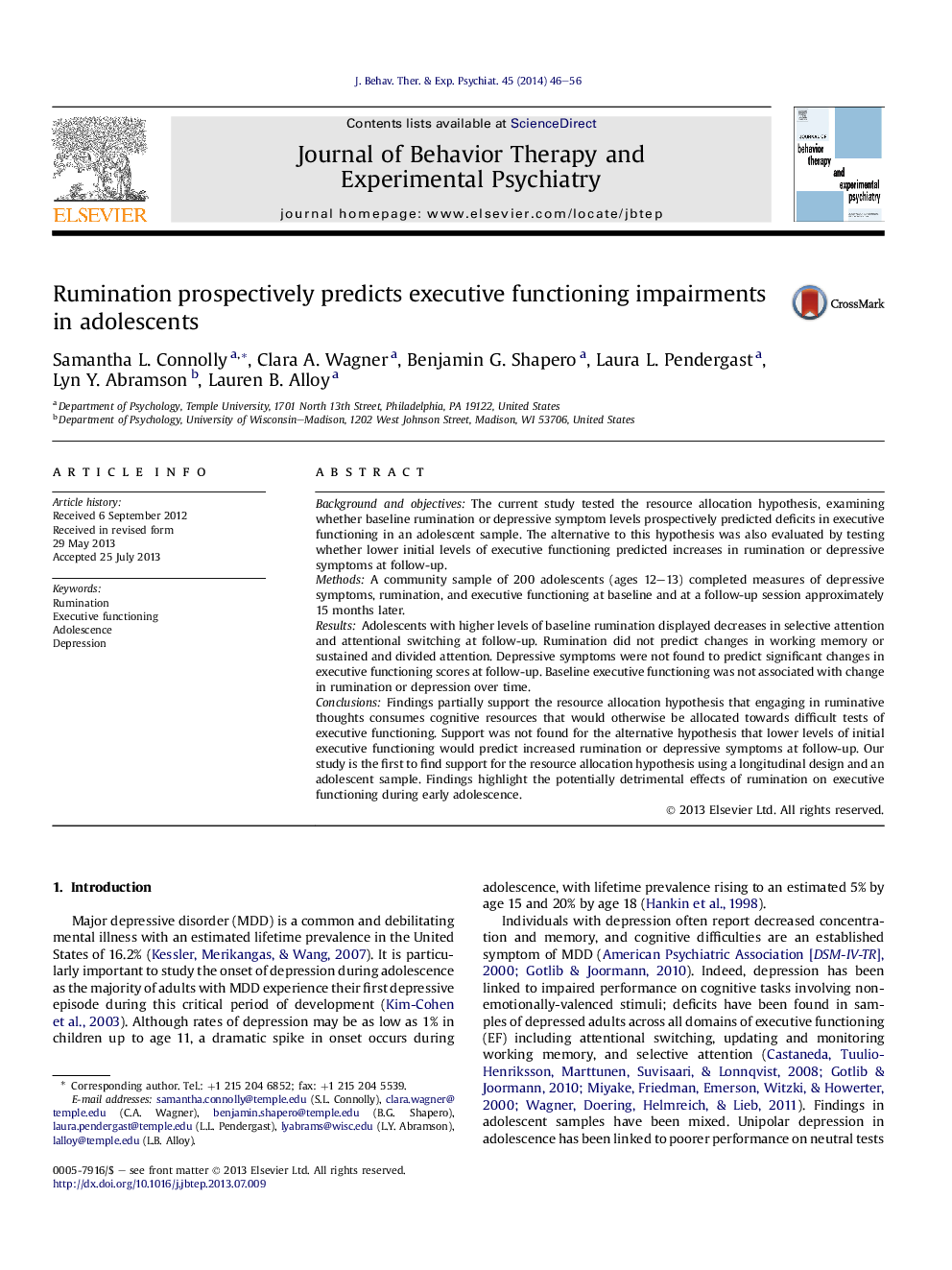| Article ID | Journal | Published Year | Pages | File Type |
|---|---|---|---|---|
| 10448115 | Journal of Behavior Therapy and Experimental Psychiatry | 2014 | 11 Pages |
Abstract
Findings partially support the resource allocation hypothesis that engaging in ruminative thoughts consumes cognitive resources that would otherwise be allocated towards difficult tests of executive functioning. Support was not found for the alternative hypothesis that lower levels of initial executive functioning would predict increased rumination or depressive symptoms at follow-up. Our study is the first to find support for the resource allocation hypothesis using a longitudinal design and an adolescent sample. Findings highlight the potentially detrimental effects of rumination on executive functioning during early adolescence.
Related Topics
Health Sciences
Medicine and Dentistry
Psychiatry and Mental Health
Authors
Samantha L. Connolly, Clara A. Wagner, Benjamin G. Shapero, Laura L. Pendergast, Lyn Y. Abramson, Lauren B. Alloy,
